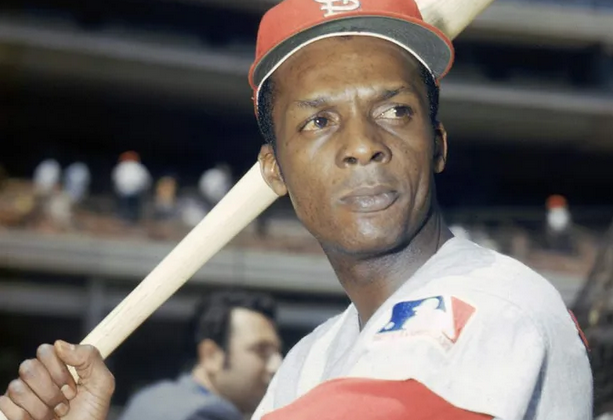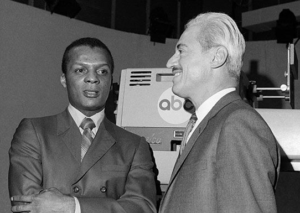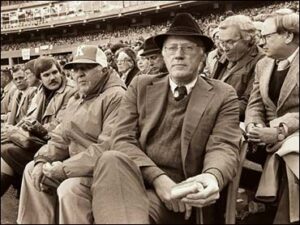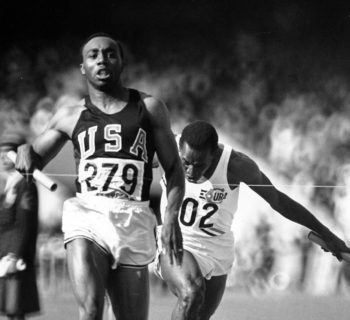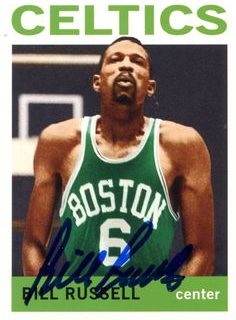Posted August 30, 2021 from The Nation —
For his talents on the diamond and his determination off of it, Curt Flood deserves to be in the Hall of Fame. —
By Peter Dreier —
Curt Flood belongs in baseball’s Hall of Fame. An outstanding hitter and outfielder during the 1950s and ’60s, he sacrificed his career to challenge the control of baseball’s corporate plutocracy over players’ lives and livelihoods. Every professional athlete owes Flood a debt of gratitude, but the billionaires who run Major League Baseball and the Hall of Fame aren’t fans of Flood, whose outlook and activism were shaped by both the labor and civil rights movements.
Flood was born in Texas, raised in Oakland, where he mastered his baseball and other sports skills. He was a high school teammate at McClymonds of later major league baseball greats Frank Robinson and Vada Pinson.

Actress Judy Pace Flood attends the Los Angeles Premiere of HBO’s “The Curious Case of Curt Flood” at Museum Of Tolerance on July 11, 2011 in Los Angeles, California.
Even before the Major League Baseball Players’ Association (MLBPA) had any influence, Flood was an eager trade unionist. “On our first date, over dinner in 1964, he quizzed me about the Screen Actors Guild,” recalled his widow, Judy Pace Flood, who was a well-known actress during the ’60s and ’70s. He was particularly interested in the fact that SAG members had their own agents and lawyers, could negotiate with film studios over salaries, and could move to different studios—all things prohibited in Major League Baseball at the time.
Flood, whose first season in the majors was a year after the 1955 Montgomery bus boycott, “was one of the first ballplayers to get involved with the civil rights movement,” said Pace Flood. “Jackie Robinson was his hero. For Curt, players’ rights and civil rights were part of the same idea.”
In February 1962, at Robinson’s invitation, the 24-year-old Flood traveled to Jackson, Miss., to speak at a rally organized by NAACP leader Medgar Evers. He told the crowd of 3,800 that he felt a personal responsibility to fight racial injustice. During his playing days in the minors and majors, Flood, like other Black ballplayers, faced racist taunts from fans and ostracism from some teammates. In many cities, Black players couldn’t stay in the same hotels or eat in the same restaurants as their teammates.
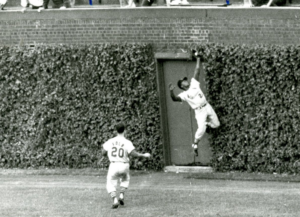
Cardinal outfielder Curt Flood leaps to make a spectacular catch in a game on September 18, 1962 at Wrigley Field in Chicago.
Flood used his anger at that bigotry to fuel his performance on the field. During his Major League career, which lasted from 1956 to 1969, Flood batted .293, including six seasons over .300. He won the Gold Glove Award, as the best defensive outfielder, seven years in a row. He played in three All-Star games and was a catalyst for the St. Louis Cardinals’ three National League pennants and two World Series victories in 1964 and 1967. His teammates selected him as their co-captain each year between 1965 and 1969.
During most of Flood’s career, the MLBPA was a toothless tiger. Players had no rights to determine the conditions of their employment. That began to change when the MLBPA hired Marvin Miller, who’d been the steelworkers union’s chief economist and negotiator, as its first full-time director in 1966.
Miller instructed ballplayers in the ABCs of trade unionism: Fight for your rights; stick together against management; work on behalf of players who will come after you; prepare yourself—professionally and financially—for life after playing ball; and don’t allow owners to divide players by race, income, or their place in the celebrity pecking order.
Two years after Miller took the union’s reins, the MLBPA negotiated the first-ever collective bargaining agreement in professional sports. Then, in 1970, the MLBPA established players’ rights to binding arbitration over salaries and grievances. From that point on, disputes would be settled by independent arbitrators rather than the MLB commissioner, who worked for the owners. That year, players also won the right to hire agents to negotiate their contracts.
Every MLB player had in his contract what was known as “the reserve clause,” which tethered players to their teams. Contracts, which were limited to one season, “reserved” the team’s right to “retain” the player for the next season. The players had no leverage to negotiate better deals. Each year, the team owners told players, “Take it, or leave it.” Even superstars went hat-in-hand to owners at the end of the season, begging for a raise. Most players had jobs during the off-season to make ends meet. When Hall of Fame pitcher Nolan Ryan broke into the major leagues in 1966, he spent the winter months working at a gas station.
After the 1969 season, the Cardinals owners decided to trade Flood to the Philadelphia Phillies, but he didn’t want to move to what he called “the nation’s northernmost Southern city.” The Phillies offered him a $100,000 salary for the 1970 season, a $10,000 boost from his Cardinals salary. But for Flood, money wasn’t the issue. It was a matter of principle. Flood said that “a well-paid slave is, nonetheless, a slave.”
Flood asked for Miller’s advice about suing Major League Baseball. Miller warned that the odds were against him. Even if he won the lawsuit, Miller said, the owners would blacklist him as a player and as a future coach or manager. In his autobiography, A Whole New Ballgame, Miller recalled: “Curt, to his everlasting credit, said, ‘But would it benefit all the other players and future players?’ And I said, ‘Yes.’ And he said, ‘That’s good enough for me.’”
Flood’s defiance—with the financial backing of the players union—threatened the owners. As Hall of Fame pitcher Dennis Eckersley—one of the first players to benefit from the dismantling of the reserve clause—said in a recent interview, “Marvin had the know-how, and Flood had the guts.”
On Christmas Eve, 1969, Flood wrote a letter to MLB Commissioner Bowie Kuhn explaining why he refused to accept being traded.
“I do not feel that I am a piece of property to be bought and sold irrespective of my wishes,” Flood wrote. “It is my desire to play baseball in 1970 and I am capable of playing. I have received a contract offer from the Philadelphia club, but I believe I have the right to consider offers from other clubs before making any decisions. I, therefore, request that you make known to all the major league clubs my feelings in this matter, and advise them of my availability for the 1970 season.”
Kuhn denied Flood’s request, so Flood decided to sue Kuhn and MLB, arguing that the league’s control over players’ employment violated federal antitrust law and workers’ rights. Over the next few years, the case made its way to the Supreme Court, which, in 1972, ruled against Flood in a 5-3 vote. In the majority decision, Justice Harry Blackmun wrote that baseball’s exemption from federal antitrust laws—the court’s excuse for not directly addressing Flood’s complaint, based on the notion that the MLB was a game, not a business engaged in interstate commerce—was an “aberration,” and declared that it was up to Congress, not the court, to fix the situation.

Newspaper article from the early 1970's talking of Flood living in Spain. [Click on image to enlarge]
Although he didn’t win his lawsuit, Flood’s case educated Major League players about the unfairness of the reserve clause, opening their eyes to the reality that something they took for granted could be overcome. Flood’s legal battle also persuaded many skeptical members of the press about the injustice of the reserve clause. Many influential sports writers and editorial writers attacked the court’s decision.
In 1975, Miller found a loophole in the reserve-clause language that didn’t require going to court. He persuaded Montreal Expos pitcher Dave McNally and Los Angeles Dodgers pitcher Andy Messersmith to play the entire 1975 season without signing contracts. When the season ended, they filed grievances, claiming the right to free agency because there was no contract for their teams to renew. That December, arbitrator Peter Seitz ruled in favor of the players, ending the reserve system.
Thanks to Miller and Flood, players’ wages, benefits, pensions, and working conditions have improved dramatically. They have won better per diem allowances, improvements in travel conditions, and better training facilities, locker room conditions, and medical treatment. In 1975, before the reserve clause was overturned, MLB’s minimum salary was $16,000 ($80,057 in today’s dollars), while the average salary was $44,676 ($223,541). By 2019, the minimum salary had jumped to $555,000 and the average salary to $4.4 million.
Baseball’s 30 team owners—20 of whom are billionaires—persistently complain that the union has undermined baseball’s financial condition, but between 2011 and 2019, the average value of the teams increased from $523 million to $1.9 billion.
For years, many sportswriters and Hall of Fame players argued that Miller belonged in the Hall of Fame. But he was kept off the ballot until 2003, 21 years after his retirement. Between 2003 and 2017, his name appeared on the ballot seven times, but the Hall’s corporate-dominated board of directors rigged those elections to keep Miller out, making sure there were enough anti-union owners and executives on the committee to deny him the necessary votes. Miller died in 2012, at 95, and he was finally elected into the Baseball Hall of Fame in 2019, a decision that MLBPA’s executive director Tony Clark called “bittersweet.” He will be inducted at a ceremony in Cooperstown on September 8.
Now that Miller will have a plaque at Cooperstown, what will it take to get Flood in the Hall of Fame?
Flood died of cancer in 1997. Posthumously, he’s been a Hall of Fame candidate three times (in 2003, 2005, and 2007), but the Veterans Committee failed to vote him in each time, a victim of the same anti-union corporate baseball establishment that kept Miller out for decades.
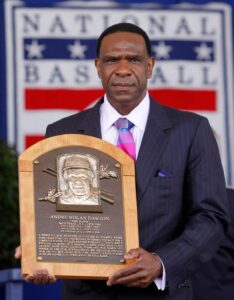
Retired outfielder Andre Dawson winning the inaugural Major League Baseball Curt Flood Award in 2020
In recent years, however, there’s been a growing movement to pressure the Hall of Fame to give Flood his due—partly a result of Black Lives Matter, and partly the result of efforts by the players’ union to educate the current generation of players and the public about Flood’s significance. Last year, the MLBPA announced an annual Curt Flood Award, given to “a former player, living or deceased, who in the image of Flood demonstrated a selfless, longtime devotion to the Players Association and advancement of Players’ rights.”
In February 2020, more than 100 members of Congress signed a letter to Jane Forbes Clark, chairwoman of the Hall of Fame and granddaughter of its founder, urging the Hall’s Golden Age Committee to elect Flood at its next meeting. They reiterated that message in another letter to Clark this June.
“Curt Flood sacrificed his own career so players after him could have free agency, leaving one of the biggest impacts on the game to this day,” said Representative David Trone, a Maryland Democrat. Added Senator Roy Blunt, a Missouri Republican: “As a lifelong Cardinals fan, I have always admired the talent he brought to the game and his bravery off the field. He deserves to be honored with his rightful place alongside America’s greatest baseball players.”
Representatives from the MLBPA, as well as from players’ unions in the NFL, NBA, and NHL, signed a joint statement on Flood’s behalf.
“Curt Flood’s historic challenge to the reserve clause a half century ago transcended baseball. He courageously sacrificed his career to take a stand for the rights of all players in professional sports,” said the MLBPA’s Clark.
When pitcher Gerrit Cole signed his $324 million, nine-year contract with the New York Yankees in December 2019, he paid tribute to Miller and Flood.
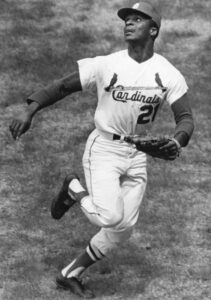 “Challenging the reserve clause was essential to the blossoming sport we have today, which I believe brings out the genuine competitiveness that we have in baseball,” Cole said. He added: “I just think it’s so important that players know the other sacrifices that players made in order to keep the integrity of the game where it is, and so I hope everybody has that conversation about Curt Flood on the bus.”
“Challenging the reserve clause was essential to the blossoming sport we have today, which I believe brings out the genuine competitiveness that we have in baseball,” Cole said. He added: “I just think it’s so important that players know the other sacrifices that players made in order to keep the integrity of the game where it is, and so I hope everybody has that conversation about Curt Flood on the bus.”
For Flood to gain entry, the Hall of Fame’s Historical Overview Committee, comprised of 10 sportswriters, has to put him on the ballot. Then 12 of the 16 members of the Golden Days Era Committee, appointed by the Hall of Fame board, have to vote for Flood at its meeting in December. Rather than simply look at his batting and fielding statistics, they should base their decision on Flood’s overall contribution to baseball.
“If the Hall of Fame recognizes the individuals with the biggest impact on our game, it is undeniable that Curt should be in the Hall of Fame,” said the MLBPA’s Tony Clark.
Many baseball writers, and many of the 69 living Hall of Fame players, will be in Cooperstown for this year’s induction of Miller as well as players Derek Jeter, Ted Simmons, and Larry Walker. This offers an opportunity for the campaign to put Flood in Cooperstown to draw attention to his life and legacy.
Flood deserves a plaque in Cooperstown for the combination of his on-field performance and his personal sacrifice so future players might have it better than he did. His absence diminishes the Hall of Fame.


